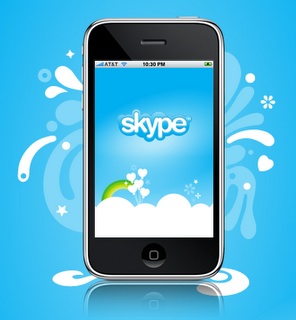 Skype has been playing around the edges of mobile health and telehealth for at least the last three years. Through Verizon, it was a sponsor of the mHealth Summit in 2010. It also has teamed with the University of California, San Francisco, to make video calling available to hospital patients.
Skype has been playing around the edges of mobile health and telehealth for at least the last three years. Through Verizon, it was a sponsor of the mHealth Summit in 2010. It also has teamed with the University of California, San Francisco, to make video calling available to hospital patients.
Last year, the Office of the National Coordinator for Health Information Technology mentioned Skype as an example of mobile communication of health information when discussing its research on consumer attitudes toward privacy and security of mobile health technologies. We don't know exactly what ONC learned from its consumer focus groups, but the agency has identified security as a concern on the provider side.
Indeed, the director of marketing and operations for Skype's Mobile Business Unit, Linda Summers, told MobiHealthNews in 2010 that Skype has tread carefully in healthcare due to HIPAA regulations in the U.S. and similar laws in other markets.
Companies offering healthcare-specific telehealth software have not been as subtle. Cisco Systems, purveyor of videoconferencing technology for, among other things, telehealth, pushed back against Skype after Microsoft bought Skype in 2011. Last November, Cisco issued a paper from two prominent economists cautioning that Skype's proprietary audio and video standards work against the goal of interoperability in healthcare and other industries.
Cold Spring, N.Y.-based telehealth vendor CloudVisit was even more to the point. "Skip Skype For Telemedicine," screams the headline of a recent CloudVisit press release. And, according to CloudVisit, privacy and security are not the primary reasons clinicians – particularly those in the mental health arena – should pay for a dedicated telehealth service.
"Skype is first and foremost a social media application," CloudVisit CEO Daniel Gilbert tells MobiHealthNews. "It doesn't convey a professional experience for a doctor or a practice."
He says CloudVisit, which was relaunched last month as part of an integrated suite of practice management and web tools, measures and bills for doctor time, has a built-in scheduling engine and can record video chats for archiving in patient records. It also provides customers with web presences.
"A lot of psychiatrists don't have websites," Gilbert notes. (Although CloudVisit is adaptable to various medical specialties, the company currently is focusing on psychiatry and psychology, where patient confidentiality is especially important.) The sites are customized to each practice. "We do not cannibalize a doctor's branding," Gilbert says.
CloudVisit literature suggests that Skype is "branded for their business growth, not yours."
Skype tends to be popular in healthcare when there is no better option available, according to Gilbert. "In cases where it's used, it's not promoted [to patients]," he says.
A year and a half ago, blogger Barbara "The Medical Quack" Duck discussed what she called "redneck telehealth," the idea of an ad hoc video consultation over a commercial platform like Skype to allow a doctor to see a wound in a semi-emergency. That term, while memorable, does not exactly convey professionalism.
But Skype frames that kind of service as a value add for medical practices. "In the past years, we've heard quite a few stories of doctors and other healthcare professionals using Skype to interact with patients who may not otherwise have face-to-face access to them," Skype's Ural Cebeci wrote on the company's official blog in September.
"In some cases those medical professionals run businesses, and Skype helps their operations grow and thrive. In those instances, their Skype usage is the ultimate example of Skype helping a business 'do well by doing good,'" Cebeci said.
He cited Dr. Gregory Smith, a physician who runs pain and addiction clinics in Los Angeles and Fresno, Calif., cities more than 200 miles apart and "separated by occasional extreme weather," according to Cebeci. "Rather than missing appointments when he can't drive between his offices, Dr. Smith conducts hundreds of appointments on Skype, ensuring patients get the care they need."
Left unsaid is whether Smith followed HIPAA protocols, but the HIPAA issue can be overcome simply by the patient giving consent to use a nontraditional means of communication.
Parent company Microsoft said on its UK health blog last July that "a growing number of private health and medical practitioners" in Britain, including Lloyds Pharmacy, were taking advantage of technology such as Skype to "advise and diagnose."

















